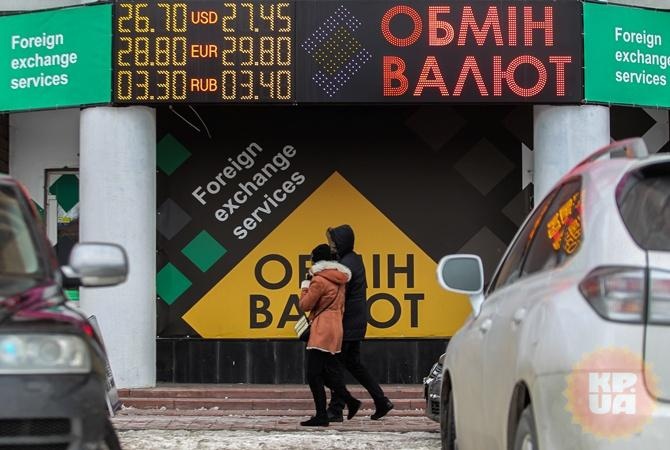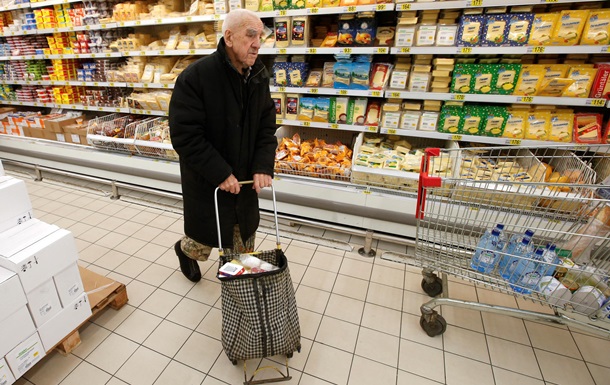However, the country’s new Euro-Atlantic orientation made an international bailout possible and international financial support institutions led by the IMF agreed on a $40 billion financial support package for Ukraine’s $132 billion economy.
As a result of the bailout, Ukraine’s international reserves have risen sharply from $5 billion in March to $13 billion in April and the government’s latest budget was largely balanced. Moreover, as a percentage of GDP, the deficit shrank from 10% last year to around 2% now.As a result of such stabilization, the economy is forecast to grow by one or two percentage points in 2016 and inflation is shrinking. The new administration has presided over the closing of certain tax loopholes and a reduction in public expenditure from 53 percent of GDP to 46 percent. This spending cut is welcome but should be carried further as a great deal of money continues to be wasted on inefficient subsidies which are often simply corruption by a different name. Some of the most promising reforms have involved the notoriously corrupt state procurement system. Electronic procurement has been introduced to increase transparency and prevent the misallocation of funds by publishing government purchases online. Since April of 2016 all Ukrainian government agencies and ministries have been obliged to use the online platform ProZorro which is predicted to save the state an enormous $2.5 billion or 2% of GDP. In addition, work is underway to tackle the endemic corruption monopoly that is the Ukrainian pharmaceutical industry. Despite the Euromaidan, in 2014 six companies – four of which are controlled by a single person – divided up 95% of medicine procurement contracts. An article in the Atlantic Council estimates that as a result of this, 30 000 HIV patients did not receive the treatments they desperately needed. In order to combat this pharma-cartel the new administration plans to purchase all medicines in 2016 through the United Nations and Crown Agents British procurement agency, leading to savings of Hr 5 billion.
Lastly, Ukrainian MPs must now declare all their income and their expenses will be published online.Yet in spite of planned changes to procurement, there is still much to be done in order to fully reform the way the government spends and collects money. In 2010 Ukraine had the highest pension expenditure as a percentage of GDP in the world, at a staggering 18%. Those who argue that such a high number is necessary to support Ukraine’s elderly population ignore the fact that much of the money is lost due to corruption and that the Netherlands has one of the best pension systems in the world but spends only 5.1% of GDP – just slightly below the European average. Anders Aslund has proposed reducing Ukraine’s pension expenditure gradually from 16% to 8% of GDP, along with abolishing all enterprise subsidies immediately (e.g. energy subsidies). Additionally, Ukraine currently has 22 separate taxes, a legacy of the Soviet era and successive inefficient administrations. Aslund has rightly suggested reducing the number of taxes to 9 in order to simplify collection and promote business. Some particularly Ukrainophile analysts have suggested that the IMF support package should include further debt relief and emergency funding. They note that a single US firm, Franklin Templeton, owns more than $7 billion of Ukraine’s debt and that the IMF and US government could pressure such firms for further debt relief. Moreover, Stephen Pifer maintains that additional US and EU financial aid is also necessary, he proposes about $5-7 billion.
Few doubt that Ukraine would benefit from more funds but the IMF must be careful not to feed corruption and oligarchic practices within Ukraine.Out of nine IMF bailout programs received by Ukraine since independence, only one was fully implemented. Until the present administration makes a genuine attempt to enact political and judicial reform, the IMF should refuse to release further funds. The conditionality of the bailout program is its greatest strength and can be used as both carrot and stick. It was due to IMF pressure that the National Anti-Corruption Bureau (NABU) was formed but all the multinational financial institutions and sovereign governments providing funding should push hard for more reform.
Related:
- Banks, business and trade: chaos and opportunity in Ukraine | #UAreforms
- Revitalized and energized: Ukraine’s energy reform success | #UAreforms
- Making a miracle: Ukraine’s untapped economic potential | #UAreforms
- Old faces in courts endanger all Ukrainian reforms | #UAreforms
- Mixed expectations for Ukraine’s new government | #UAreforms
- Ukraine’s judicial reform: plus ca change | #UAreforms
- 3 reasons to be optimistic about Ukraine’s battle for better bureaucracy | #UAreforms





